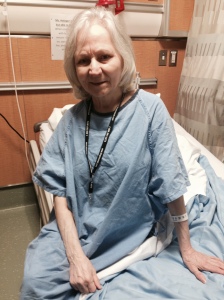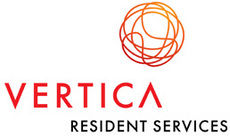![image[2]](https://incognitopress.wordpress.com/wp-content/uploads/2014/12/image2.jpeg?w=300)
This is my mother, Lucia. She is currently residing on the tenth floor of your hospital, but if you get your way she won’t be there for much longer.
She has been deaf all her life, is only 70 years old and suffers from diabetes, stroke damage and, worst of all, early onset Alzheimer’s disease. In the past few years, she’s had several falls which resulted in a broken hip, a sprained wrist, and scores of bruises. Two weeks ago, she fell somewhere on the street (I don’t know what exactly happened since she has no memory of the incident) and ended up being admitted to your Mount Sinai hospital in downtown Toronto.
I spent the week after her admission trying desperately to get a hold of my mother’s newest CCAC coordinator, who apparently went on an extended holiday. This is the third coordinator my mother has been assigned to in under a year, by the way. I don’t even think the woman remembers my mother without looking up her case file.
CCAC stands for Community Care Access Centre – these are the folks who get to file the applications for people waiting for long-term care homes. They decide when someone is in crisis, and when someone can safely remain in their residence for sometimes years on end, while waiting for a bed to open up.
More than ten days passed and nobody at CCAC bothered to phone me back. As I waited, I did my best to delay responding to the frantic calls of the in-house Mount Sinai social worker, who kept leaving me voice mails indicating they wanted to discharge my mother. Eventually I had no choice but to call Alana back and arrange for a conference call to discuss “transition” plans.
I spent the weekend before the conference call educating myself on my mother’s rights: a huge learning curve. Over the last year, she had already been on a list for nursing homes – at the top of her list is the Bob Rumball LTR Home for the Deaf – located in Barrie, ON and the only home in Canada specially-designed for the needs of deaf seniors.
According to the Long-Term Care Homes Act, an Ontario resident has the right to go to the nursing home of their choice, not the first available bed that opens up. And, as a deaf pensioner, before her mind became clouded with disease and confusion, my mother had tearfully insisted she go to the one place she felt she would be understood – among people who were just like her, who she could communicate with in sign language.
As a Romanian-born deaf person, my mother cannot adequately communicate in English with anybody – thus being locked inside yet another cage of disability and inadequacy.
Worse yet, her eyesight is now failing.
The wait time for the Bob Rumball Centre has been quoted as anywhere from four months to two years. The wait depends on who is deemed to be in crisis and who lucks out with a more hands-on CCAC coordinator. Of course, in order to prevent discrimination the Rumball Centre also takes in hearing people from the community, and thus my deaf mother is likely lower on the list for the only Deaf seniors home in Canada than someone higher on the list who happens to be hearing.
As her power of attorney representative, I owe it to her to ensure that her needs and wishes are met. For someone who worked for the CIBC for over twenty years and received no pension, she has been left penniless and dependent on approx. $650 a month to survive. She cannot afford an expensive retirement home or a private room. And as a writer, I am dependent on contracts and all-too-meagre royalties. I have no extra income to subsidize her care, and I shouldn’t have to – in Canada, seniors are supposed to be cared for by the medical profession.
Or so I thought.
But clearly, the Mount Sinai staff were more eager to clear out a pesky bed-blocker than ensure that my mother won’t starve to death in her tiny apartment. But I was prepared to be pressured – reading this Toronto Star article on hospital tactics to clear out seniors in need was eye-opening and prepared me for what was to come.
“Our medical team has assessed your mother and found her medically-stable and ready for discharge,” I am told by Alana the Mount Sinai social worker. “So we’re contacting you to make arrangements for her discharge.”
Really? Did a team of medics actually assess my mother and found her capable of being on her own? I seriously doubted the in-hospital social worker – whose job is to clear bed-blockers and send people like my mother onto other pastures – had even laid eyes on her.
What made her statement even more hypocritical was the fact that I had visited the hospital a day earlier and spoke with a nurse who expressed her concern about my mother being able to live independently. “But she does use the walker to get to the toilet,” she tried to reassure me. Because that’s what counts, the fact that my mother, for the most part, can make it to the toilet. Sure, she might be unable to feed herself, wash herself, shop for groceries, manage her rent and any kind of bills, but when she starves to death in her apartment at least she’ll have a clean diaper.
But back to the conference call, where Alana and Denise, the in-house CCAC worker, were doing their best to convince me there was no better place for my mother than to be at home. “Oh, but her CCAC coordinator can make sure that she receives daily visits and help with meal prep,” the social worker gushed. “She can’t stay here.”
“But how exactly is this going to happen since she has a track record of not opening the door to strangers? She doesn’t know or recognize most people, and she thinks they’re trying to poison her so she won’t accept food from them.”
My mother might be considered “medically-stable” for discharge, but mentally she is anything but. In a perfect world, her CCAC coordinator would reassess her immediately and deem her to be in “crisis”. Following this, she would receive daily visits from a home care provider until a bed opened up in her nursing home of choice. However, in a perfect world, her CCAC coordinator wouldn’t have gone on vacation for over two weeks and left nobody in charge of my mother’s file.
In a perfect world, someone with broken limbs, deafness, failing eyesight and paranoia (someone who doesn’t open the door to “strangers”) wouldn’t be expected to live independently.
And ultimately, in a perfect world, my mother wouldn’t have Alzheimer’s and dementia.
Perhaps the health professionals at Mount Sinai need some brushing up on the consequences of this terrible disease on a person’s mind and spirit. So, without further ado, let me explain to the Mount Sinai Administrators who are itching to get rid of my mother exactly WHY she is not “medically-stable” for discharge:
– PARANOIA:
– sometime last fall, she suddenly decided that the Meals-on-Wheels delivery people were poisoning her food. She made herself deliberately ill several times to vomit the food, and then refused to open the door to the poor Meals-on-Wheels drivers, until we had no choice but to remove her from the program
– her last CCAC coordinator had tried to arrange for daily visits, but my mother – being paranoid and suffering from hallucinations – refused to open the door and allow people inside her apartment.
CONFUSION:
– she doesn’t know what day, month, year it is. She doesn’t know her own age. Heck, she doesn’t even know her address and has forgotten why she ended up in the hospital. She forgot the names of her closest relatives and struggles for a few seconds to remember who I am when I visit her in the hospital
– she forgets to take her medications, which as a diabetic places her life in jeopardy.
POOR HEALTH
– with a broken leg and being too frail to use crutches, she cannot go grocery shopping or prepare meals for herself. The last time she cooked potatoes, she ended up with a nasty burn that left a scar on her arm.
PUBLIC SAFETY
– she insists on still cooking on the stovetop, which places everyone in her building in jeopardy in the event she forgets to turn off the burner. She cannot figure out how to use a microwave or a kettle, and the stove is the only way she remembers to warm her food.
This isn’t the way things should be.
If a hospital stay costs the health care system $1000 per day, why not allow those who cannot afford expensive private rooms in nursing homes the option of taking those empty rooms?
“Have you considered paying for a private room at Bob Rumball?” the hospital’s CCAC coordinator asked me. “She could be in there within two months instead of years.”
If only.
There are rooms that stay empty in every nursing home because they are designated as above the “Basic” guarantee fee the Ontario government is willing to pay for each senior. These private or semi-private rooms – which cost in the range of $2000-$3000 per month – would still be far cheaper than keeping a senior in the hospital for months on end.
But my mother doesn’t have that kind of money, and neither do I.
And in the end, I shouldn’t have to threaten a hospital with a liability lawsuit for prematurely-discharging a frail senior who is a danger to herself. “We’ll have to speak with Administration,” Alana-the-social-worker tells me, and I hear the disapproval in her voice. I know I’ve just made the Admin department very unhappy. “But she can’t stay here.”
I shouldn’t have to hire a lawyer – especially since I can’t afford it. But hopefully through a service like that provided by the Advocacy Centre for the Elderly, I might be able to get some free legal advice on how to proceed from here.
I shouldn’t have to walk into my mother’s apartment next month and see her fallen on the floor with another broken hip or leg. Or find her starved to death because she cannot feed herself and often chokes. But it appears that, come hell or high water, both the CCAC and Mount Sinai professionals are determined to send her home.
I suspect that my story isn’t that unique from what thousands of other families all over Canada experience every year. Still, the feelings of utter frustration that I have experienced this month from the medical establishment has left me shaken and profoundly angry. I once believed the highly-touted Canadian health care system placed humans first and profit second. I no longer hold any faith in this being true.
Mount Sinai might serve great kosher food (my mother sends her thanks), but the way they handle the frail and elderly is anything but kosher.


![image[2]](https://incognitopress.wordpress.com/wp-content/uploads/2014/12/image2.jpeg?w=300)